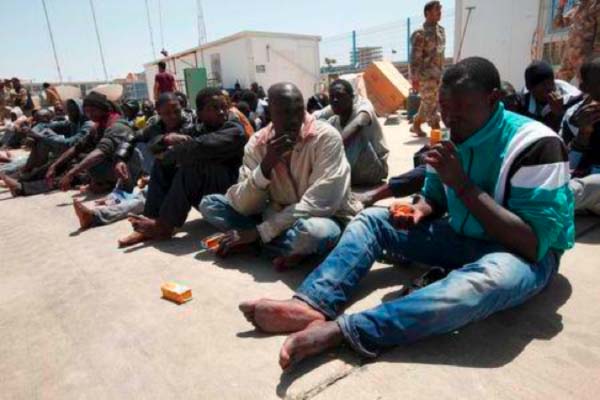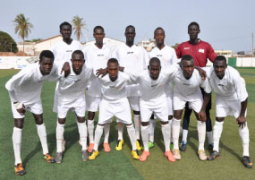
We bring you the recent encounters and difficulties some of our Gambian brothers and sisters faced during their journey to Europe, through what is now called “Back Way” route.
As the saying goes “Europe is not an absolute heaven” as people may perceive it, and not all that glitters is gold.
Most of the time people would say it is a great opportunity to go to Europe, but the reality does not measure up to what we hear and see in our societies; it is completely different.
We know the journey is perilous, but many are still brave enough to embark on the back way, and many don’t care what will happen along the way.
“I am happy today to speak out loudly, because I am one of the lucky ones who survived. We spent seven days in the Mediterranean Sea, and many people died as a result of hunger,” said one of the survivors.
He continued: “We were hopeless in the sea. The wind was just taking us from one point to the other.” This was a horrific quotation of an unfortunate immigrant whom I had an encounter with during my little research on this theme.
Even though he requested anonymity, he allowed me to indicate that he was deported back to The Gambia, and he is currently doing a self-initiated business.
Really, his story is dreadful as he was devastated by unemployment in his motherland, and decided to start the perilous journey to the ‘promised land', fully aware of the dangers awaiting him along the way, and separating him from his wife and two children without knowing whether he would ever return home again.
For the past years, the perilous journey made uncountable headlines in the Gambian newspapers, as boats carrying immigrants would capsize every now and then, killing hundreds of Gambians and other nationals.
Normal deaths are often due to dehydration, lack of food, inexperienced boat captains, smell of the sea and adverse weather conditions and boat overloading.
In history, Libya to Italy has long been a gateway into Europe merely by a transit point; many people use it to pass through to Northern European countries, not exactly Italy as a country.
For many African asylum-seekers and refugees, crossing the Mediterranean Sea could be viewed as the biggest challenge they must undertake to reach the ‘promised land’.
Though, the journey is a shortcut for some, a new beginning emerges for others.
“Migrants pay their smugglers hundreds of thousands of dalasi for the journey and, sadly enough, the money is acquired by selling family properties such as land, goats, cows and other valuable properties just to sustain their trip to Europe,” he said.
“The decision to migrate may be fuelled by a multitude of motivations. Although The Gambia is making momentous economic gains, it is broadly struggling to translate these gains into sustainable livelihoods for all of its youth.”
To understand all of this, we must begin by finding out what are the causes for an individual to leave their homeland and family to spend their life savings, and to risk their lives in the desert and at sea to face the unforeseen circumstance.
Another 25-year-old male immigrant, who spoke, said he recalled a ‘terrific’ moment they encountered while arriving in Libya, and that when they landed in Libya things only got worst.
He said he was made to across the border with other fourteen boys and two girls, all of them struggling for days without good food and the terrifying trip they had just experienced.
He added that they demanded for “ransom” if they are to continue with their journey, leading them to make a phone call back home for the money the armed men demanded for their release.
“Imagine, I paid them almost D75,000 for my release but we had to go through some harsh moments which I’m still recovering from.”
He said many smugglers make unrealistic promises to migrants about the kind of lives that they may be able to have when they are abroad, for migrants who do decide to hire the services of smugglers.
The cost of a trip to Italy averages several hundreds of thousands of dalasi, depending on the distance and difficulty of the route, the level of institutional control over the route and on the transit and destination countries’ response to the migrants’ arrival.
“Furthermore, even if they do reach the Italian shores, migrants have to endure long, strenuous processing procedures and face deportation if they are not found to be genuine refugees,” he said.
“Searching for a better live has made youths to lose control of their sense of reasoning not to take the perilous journey, but the only thing on their mind is that they will succeed and change their stories to successes,” he added.
He said sadly for their parents, who have a role to play in guiding and giving direction to their children, they are not living up to expectations; rather they contribute to the predicament of this generation.
“It is often argued that societal or peer group pressure help to motivate an individual, but this is not always the case. The truth is that it makes them to work beyond their limit, and when the pressure is not managed properly the result to them is frustration,” he said.
He said thousands of Gambian youths are no exception to this law of nature, as the economic situation in their country has forced most of them to embark on a perilous journey to Europe in search of greener pastures.



